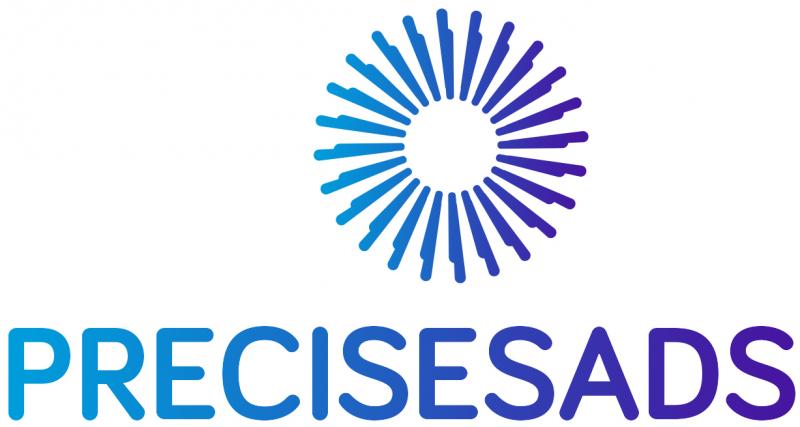Systemic autoimmune diseases (SADs) are a group of chronic inflammatory conditions where the immune system malfunctions and attacks the body’s tissues. With autoimmune aetiology and many common clinical features, the diseases are difficult to diagnose because of clinical overlap, and hard to treat, despite the significant improvement of available drugs. SADs are one of the leading causes of disability and can occasionally be fatal. With no effective cure in sight, there is a clear unmet need to get the right treatment to the right patient, and to better understand those conditions, so that in future, the right medicine can be produced.
PRECISESADS explored the idea that the conventional disease definition is an outdated concept in the current medical environment. The aim was to define clusters of individuals who share similar molecular pathways for their disease and therefore could be treated in a targeted and personalised way. By evaluating the molecular and clinical data, the project aspired to deliver new biomarkers for use in more targeted clinical trials, and ultimately, pave the way for new, tailored therapies for patients suffering from these life-long, debilitating diseases.
In-depth molecular study
With the hypothesis that the identification of specific molecular signatures in patients with SADs will enable clinicians to tailor therapies according to the specific aetiological pathways at the root of the pathology in each individual case, the focus was on the SADs that have been little studied, but that share pathogenic mechanisms. The researchers analysed over 2 000 patients living with systemic lupus erythematosus (SLE), systemic sclerosis (SSc), Sjögren’s syndrome (Sjs), rheumatoid arthritis (RA), primary antiphospholipid syndrome (PAPS) and mixed connective tissue disease (MCTD), gathering data on the molecular causes of their disease as well as their clinical symptoms and making comparisons with over 600 healthy controls.
By using the power of ‘OMICS’ (genomics, transcriptomics, epigenomics, metabolomics, proteomics), and bioinformatics to identify new classifications for SADs known to share common pathophysiological mechanisms, PRECISESADS scientists conducted an in-depth molecular study unprecedented in immunology research. Moreover, they addressed several questions relating to pathology within more defined ‘tissue’ entities, such as the kidneys or skin. In addition, cell-specific information was used to further help in the classification of the disease clusters.
New molecular classification
The idea that SADs may be usefully reclassified according to their molecular pathology led to the main result of the project, the discovery of a new molecular classification of SADs. Scientist realised that the SADs’ molecular patterns or ‘clusters’ do not fit the diagnoses based on traditional clinical criteria and that many different diseases as diagnosed by conventional clinical definitions are represented in each of the clusters. They found out that the patterns are stable, meaning that an individual with active disease or an ongoing pathogenic process maintains the same molecular pattern, i.e. each individual has one molecular pathway of disease. In addition, integrative analysis of patient OMICS data revealed that there are four clusters of patients, and each of them contains all studied diseases. The four molecular patient patterns (adaptive immune pattern, inflammatory pattern, interferon/innate immune pattern and those with no clear pattern), were compared with SADs patient blood biomarker profiles including autoantibodies, cytokines, chemokines, inflammatory marker and metabolites. This identified molecular pathways that may be common to SADs currently classified as different based on clinical phenotype.
Identification of clustered biomarker signatures that better describe a molecular classification of SADs than existing traditional definitions could empower physicians to precisely tailor therapy to individual patients. This novel taxonomy may also increase the likelihood of more successful clinical trials, through the pre-selection of participants most likely to respond.
Another important achievement for the PRECISESADS consortium was the discovery of new biomarkers at tissue level for scleroderma and lupus nephritis. Analysing the results of diseased tissue matching to the patients’ blood and urine samples, led to the identification of novel diagnostic and prognostic biomarkers. Moreover, in order to perform extensive OMICS approaches, researchers carried out multi-parameter flow cytometry analyses in 11 different laboratories across Europe, which required the precise tuning of all instruments. This effective multi-centre harmonisation enabled the formation of the cytometry database for the identification of specific molecular signatures in individuals with SADs.
PRECISESADS scientists also developed protocols that allow the harmonisation of sample collection and data quality controls that may be used for clinical studies and clinical trials, along with procedures and guidelines to help sites in conducting the trial and to ensure the overall quality of the study results.
Other achievements from the project include:
- development of methods for the detection and prediction of lupus nephritis;
- determination of an easy to use test to classify SADs patients by flow cytometry;
- a calibration method for the harmonisation of flow cytometers across different instruments and locations;
- comparative OMICS characterisation of several models of SLE was performed to determine similarities and differences between the models, and how these compare to the identified human clusters - this information will support the selection of the most appropriate animal models for drug discovery and development;
- database and the sample collection, to be used in further research.
Next steps
PRECISESADS proved that taxonomies of SADs can be changed, and this will hopefully contribute in the long term to more precise treatments and hence improved patient care.
In addition, the consortium created a new resource that will include not only all publicly available data for autoimmune diseases but also the PRECISESADS data once the clusters are published into the Autoimmune Disease Explorer (ADEx). This will allow an in-depth exploration of the data and comparisons with other data sources, and together with the clinical molecular profiles, it will facilitate the selection of appropriate animal models for drug discovery and development. Effective collaboration between physicians, scientists and bioinformaticians from 21 academic and 5 industrial partners, and 2 SMEs, helped reinforce the multidisciplinary demands of the era of “big data” and has implications for future drug development and medicine in general.

